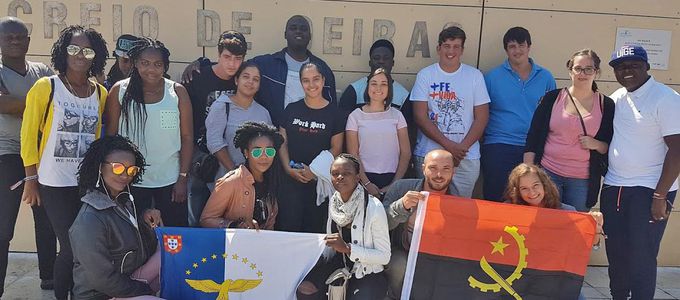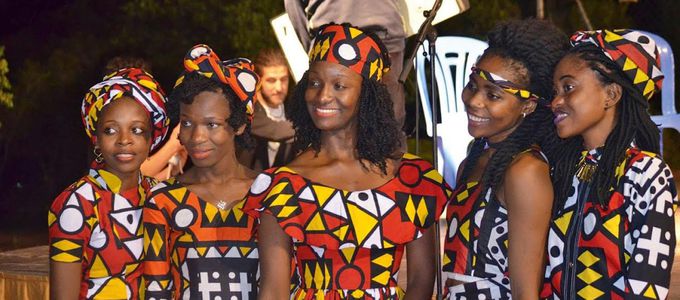IYC: the emphasis is on the “I”, and quite a challenge

The International Youth Convention 2019 is truly meant to be international: not only through presentations by the worldwide District Churches but also by the many young visitors from as many countries as possible. That’s quite a challenge.
The majority of the New Apostolic youth would like to be there of course, but for many the chance to visit Germany will remain an unfulfillable dream. It became clear that money is not the only obstacle when District Apostle Rainer Storck (Western Germany) invited a number of young people from Angola to the Iberian Youth Convention in Alicante in Spain last year. In an interview he explained just how many difficulties had to be overcome.
How many New Apostolic youth are there in Angola?
The average age of our brothers and sisters in Africa is significantly lower than here; particularly because of the demographic situation there. District Apostle Helper João Uanuque Misselo told me that in Angola it is the youth who very committed and involved in the church. They serve as ministers, are active in the choirs, bring their offerings, do family visits, support the work among the seniors and are very involved with religious education. I estimate that around 60 per cent of the active members come from the youth: that is more than 150,000.
How many of them were invited to come to the youth convention in Spain?
We invited eleven young people to come to the Iberian Youth Convention in 2017—bearing in mind the International Youth Convention 2019.
What was the criteria used in selecting them?
For instance, the Church had to make sure that the youth would return home afterwards. Then, we wanted to choose those who were engaged in the work within their congregation and who could form a homogeneous group. We had many discussions with the youth counsellors for this purpose. Finally, we had formed a very nice group who were joyful and enthusiastic in representing Angola in Spain.
Did they have any problems entering Spain?
First of all, we had to apply for their visas. The Portuguese consulate didn’t want to issue them. Then the Spanish authorities wanted police clearance certification from Spain for each person. That would have taken weeks to organise. In Luanda there were problems with customs clearance: the officials didn’t want to allow them to leave the country. Further problems arose in Lisbon with the customs. The officials there presumed that the youth were travelling illegally. They finally arrived in Spain after many hours’ delay. The youth convention was already half way through, but they were overjoyed that they could experience the divine service with the Chief Apostle.
Could similar problems arise with other countries?
Most definitely, yes. I am concerned that some countries would be even more critical than Angola in issuing visas; particularly when they concern young people. It isn’t unusual for the European authorities to learn, for example, that athletes vanish after their arrival and fail to return to their homeland. The embassies want to prevent that, which is why they look critically at visa applications.
How can the African youth’s entry into Europe be facilitated?
It will be important for the African countries to organise direct flights for their members to Germany, so that no third European country becomes involved. This will make visa transactions much simpler. Should transit stops be necessary they should be chosen in Africa.
What plans are being made to allow the youth from other continents to take part in the 2019 Youth Convention?
The respective District Apostle will decide what financial travel support can be given to the youth and who can actually take part. The four District Apostles in Germany have already decided that we will support travel arrangements for the youth on a small scale. We are still considering in Western Germany how we will choose which youth to support. However, there can only be small delegations from each of the countries because the formalities are complex and the costs high. At the same time, we want to present the diversity of the international Church and therefore the youth should be involved in designing a booth or making a presentation of their countries.












